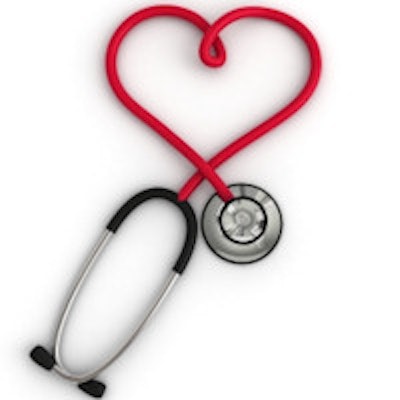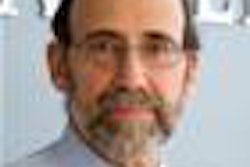
With midlevel providers in certain regions being allowed to perform many of the services once the exclusive responsibility of dentists, how should dentists distinguish themselves and define their scope of practice? And how should they be trained?
These questions are being addressed by Harvard School of Dental Medicine (HSDM) faculty members Donald Giddon, DMD, PhD, and Brian Swann, DDS, MPH. Their innovative solution is an oral physician (OP) residency program, sponsored by the HSDM, Harvard Medical School, and the Cambridge Health Alliance in Cambridge, MA.
"The term 'oral physician' best describes what dentists can and should be doing as part of overall healthcare," said Dr. Giddon, a clinical professor of developmental biology at HSDM. "The name change will also permit dentists to separate themselves in the minds of the public and other healthcare providers from nondentists who are providing oral healthcare."
With increasing numbers of midlevel providers, particularly in underserved areas, the public will not be willing or able to distinguish these nondentists from the more highly trained dentists, Dr. Giddon added. "Dentists, therefore, must assume a new superordinate designation as oral physicians who will oversee all dental care, whether provided by dentists or nondentists, including physicians," he said.
HSDM's oral physician residency is an extra year, sandwiched between the resident's graduation from general dental practice residency (GDPR) and before other specialty training or general practice. Under the jurisdiction of Dr. Swann, who is also the director of oral health at the Windsor Street Health Center of the Cambridge Health Alliance, the residency provides added rotations in emergency medicine, oral surgery, medicine, anesthesia, and pediatric dentistry.
Emphasis is placed on developing enhanced patient interviewing skills, particularly for eliciting lifestyle information, including sexual history, physical and substance abuse, and eating disorders. Residents also work to increase their competence in the medical aspects of oral health and disease.
Scope of practice
One goal of training oral physicians is to help address the shortage of primary medical care in the U.S. (Journal of Primary Prevention, August 2013, Vol. 34:4, pp. 279-291). Oral physicians would be able to measure patients' blood oxygen levels, take temperatures, examine eyes and ears, perform oral cancer exams, perform prediabetic screenings such as body mass index and waist circumference, and ultimately order blood and urine glucose tests, as well as give flu shots. This medical orientation would also help OPs to better participate as members of emergency preparedness teams, Dr. Swann noted.
“Dentists as healthcare providers should not focus only on the mouth.”
Another important goal of the program is to improve communication and understanding among the various members of an integrated healthcare team.
"We need to improve communication between oral health and medical providers," Dr. Swann said. "Right now, it's dismal. Oral health isn't being taught in medical school, and dental schools aren't doing enough to have their students incorporate their medical training, but they're starting to."
At HSDM and Harvard Medical School, for example, dental and medical students share the same curricula for the first two years and then branch out. HSDM's OP residents learn from medical staff of the Cambridge Health Alliance and share their oral health knowledge with their medical colleagues. Because GDPR programs are generally hospital-affiliated, they allow for better integration of medical and oral health services during training.
Approximately four residents are chosen for the program each year out of approximately 80 applicants, who generally have an interest in public health. Upon completion, they get a certificate from the oral physician program as an adjunct to their general dentistry practice residency.
Mahshid Bahadoran, DDS, was one of the first oral physician residents in 2010-2011 and is now doing her orthodontics residency at HSDM.
"I was very inspired by the oral physician program, and I really enjoy integrating my oral physician training into my daily base practicing," Dr. Bahadoran told DrBicuspid.com. "Dentists as healthcare providers should not focus only on the mouth. We should be aware of the connection between oral and systemic health, and extend our treatment to reach the goal of a healthy mouth and body."
A work in progress
Even if dentists become oral physicians as a general rule, third-party payors currently don't compensate for medical screening in the dental office.
"It is still to be determined how cost-effective it is for dentists, whether they are called oral physicians or not, to provided limited preventive primary care," Dr. Giddon said.
Terminology also can be confusing. The term "oral physician" in the U.K. refers to people who are often physicians with specialty training in oral medicine. In the U.S., oral medicine specialists, such as those represented by the American Academy of Oral Medicine, are oral health providers who focus primarily on the soft-tissue manifestations of local and systemic diseases versus striving to augment primary care like OPs.
The residency was originally funded by a grant from the Milton Fund for $40,000.
"We believe our program is an introduction to the concept," Dr. Swann said. "It is not as formal as it has the potential to become. We need to go after additional funding to turn this into, perhaps, a two-year residency with more definition."
"We are a necessary work-in-progress," Dr. Giddon added.



















